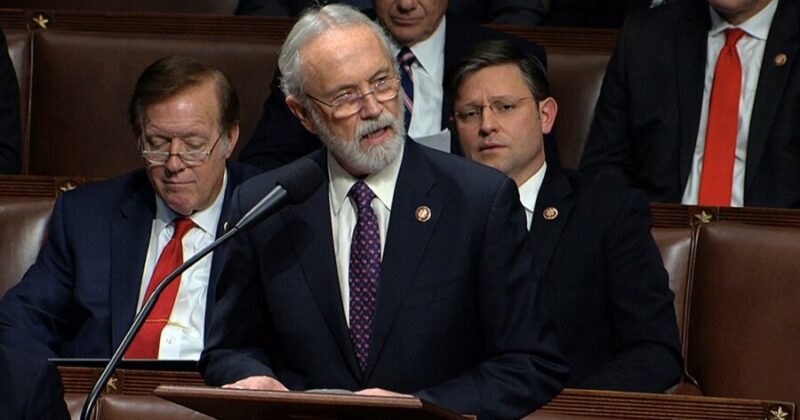GOP Congressman Dan Newhouse is introducing a proposal aimed at blocking businesses and individuals linked to the Chinese Communist Party from buying land near federal properties.
Newhouse, a Republican from Washington state who serves on the House Select Committee on the Chinese Communist Party, is anticipated to present the bill on Tuesday evening.
The “No American Land for Communist China Act” has 20 cosponsors, including the support of committee Chairman John Moolenaar, R-Mich.
The legislation states that it would “prohibit certain businesses and persons from purchasing real estate adjacent to covered Federal lands in the United States, and for other purposes.”
The measure would target businesses and individuals associated with the government of the People’s Republic of China, who “directly or indirectly through any contract, arrangement, understanding, relationship, or otherwise, owns 25 percent or more of equity interests of the business.”
The bill clarifies that federal lands refer to those owned by the United States and overseen by the Secretary of the Interior, including Indian reservations, areas under the jurisdiction of the Secretary of Defense, and lands managed by the Forest Service under the Secretary of Agriculture.
“The Chinese Communist Party is at our doorstep, and we best not let them in,” Newhouse said.
Newhouse also said that he has been “closely watching the rise in cases of the CCP’s attempts at undermining our institutions.”
“From spying on sensitive national security sites to buying up American farmland, it is clear we are vulnerable to their malicious efforts,” Newhouse said.
“This bill strengthens our domestic defenses and protects critical federal lands against these foreign actors that aim to deepen their already dangerous influence on the world stage,” he added.
The proposed bill is being introduced amidst initiatives aimed at enhancing the security of U.S. territories, particularly the areas surrounding military bases nationwide.
The Committee on Foreign Investment in the United States (CFIUS), made up of various federal national security agencies, is responsible for scrutinizing specific purchases and property deals made by foreign individuals and entities.
Last year, CFIUS broadened its authority to include more military sites following concerns about potential national security threats posed by the acquisition of such properties by individuals linked to the Chinese Communist Party.
By law, when CFIUS examines property deals involving foreign individuals, it must assess the possibility of intelligence gathering at military bases, which could jeopardize national security operations and heighten the chances of foreign surveillance.
Share your thoughts by scrolling down to leave a comment.

